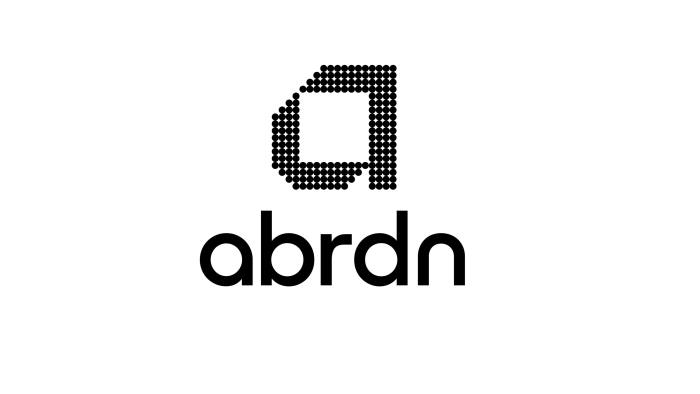“Differentiate, differentiate, differentiate” – the three rules of branding according to Roberto Goizueta, the former CEO of The Coca-Cola Corporation (TCCC). The obvious and most essential differentiator is the brand name and accompanying graphic design. That is, after all, the intellectual property in which brand value is captured.
This week an eye-catching new brand identity was launched – eye-catching both because it changed the name of an organisation that had existed for over 100 years, and because it happened in the normally conservative sector of investment and insurance. Standard Life Aberdeen became Abrdn.

The world of marketing is littered with bold branding launches that become false starts or hastily withdrawn failures. PWC launched a new consultancy called Monday which didn’t last the month. BA stunned the world with its multi-coloured tailfins only to withdraw them in favour of the Union Jack.
Differentiation for differentiation’s sake won’t cut it. One of our golden rules to any client about to announce a new brand is: ‘Never launch a logo’. SL Aberdeen will not be agile because it’s dropped every letter ‘e’ in its name.
In our book On Purpose, we argue, like Goizueta, that there are three rules of differentiation which will build sustainable value for branded businesses. You can’t choose between them. You have to follow all three. They’re about strategy, experience and culture. We call them Stand Up, Stand Out and Stand Firm.
Stand up
The first way to differentiate is through a strategic commitment to a brand purpose. Stand up for something important. By this we mean an extreme form of customer-centricity that sits at the intersection of the needs of your customer, the world in which they live, and your point of view about how you’ll improve both. Brands from Apple to Zappos have differentiated through a relentless pursuit of improving their customers’ experience and making a positive impact on society more generally. Our relationship with the power of computing is undoubtedly better because of Apple. It’s certainly possible to have a higher sense of purpose in the financial services world and solve problems for both customers and society at the same time. TIAA, one of the world’s largest financial service companies, was founded by Andrew Carnegie over 100 years ago to ensure teachers ‘could retire in dignity’. It now provides a guaranteed monthly income to its customers for the whole of their life after retirement. Given that funding the cost of an increasingly ageing demographic is a major problem for all Western societies, that purpose hits the sweet spot of doing good for customers and society as a whole.

Stand out
Clearly the branding itself and the end-to-end experience you deliver for customers is the second source of differentiation. That’s not just about creating an eye-catching name and logo, but about consistently branding the experience with graphics and language that surprise and delight and reinforce the desired experience. When PayPal responded to customer concerns as to whether their transactions had been completed, they did so by introducing a simple message on screen at the point of completion: “Sweet – it worked”. We wait to see what positive change in the experience Abrdn customers around the world will enjoy.
Stand firm
The third source of differentiation is in a brand’s culture. 30 years ago, when Goizueta was at TCCC, a brand’s culture was neither visible nor of great concern to customers. That has changed dramatically. Societal demand for transparency, accountability and sustainability together with the rise of social media, whistle-blowers and sites such as Glassdoor, have enabled us to ‘lift the hood’ and look under the shiny exterior of corporate branding at the workings inside. Brands such as Patagonia have built a following based as much on their culture as their clothing. Amazon’s UK television adverts are all about what it’s like to work at Amazon – a way of making Amazon customers feel more comfortable about the speed and ease of their experience.

So what about the culture at Abrdn? The announcement of the new brand was accompanied by a commitment to a comprehensive engagement programme, which is welcome. The media, however, may well keep one eye on bonus announcements. Earlier this year, the CEO announced there would be no company-wide bonuses for staff. If the board are awarded bonuses (some reports have estimated the CEO could be in line for £2.2m), then to the casual observer that might look like old-fashioned corporate greed, or maybe new-fashioned grd. Others familiar with corporate governance will know that the decision will have been taken by a remuneration committee based on strict rules. Nevertheless, the ‘optics’ might not look good, especially given most people’s natural scepticism toward financial services.
So will Abrdn endure or will it go the way of Monday? If it fails to deliver, perhaps at some point the name SL Aberdeen will be reasserted alongside Abdrn, relegating the latter to the role of logo. Then a new logo might be quickly introduced, a new exciting chapter in the brand’s history announced, and Abrdn quietly abndnd. It will succeed, however, if what Abrdn provides for its customers and through its culture is a purpose-led experience that differentiates and delights meaningfully and consistently. Maybe the CEO is being very clever. Maybe he is giving us a subtle message that brand (and by extension the customer) will now be the centre of the company’s culture. Conspiracy theorists will have noticed that Abrdn is an anagram of ‘brand’.
Photo by Malik Skydsgaard on Unsplash




